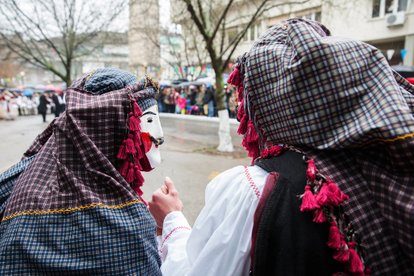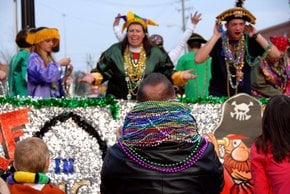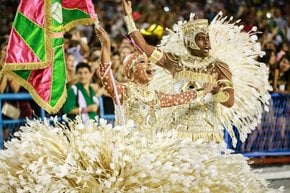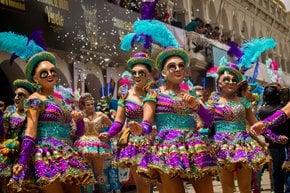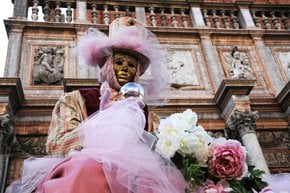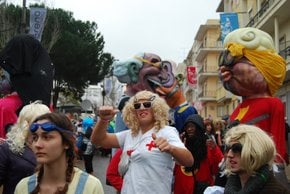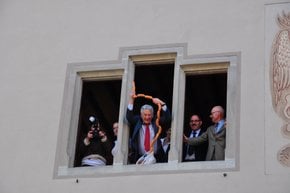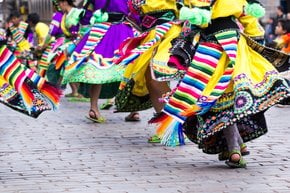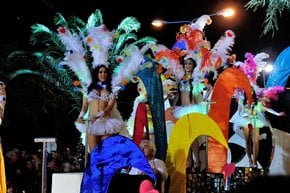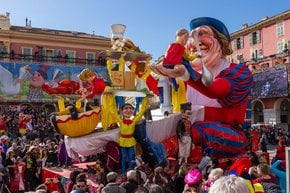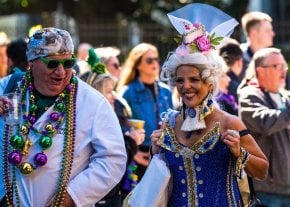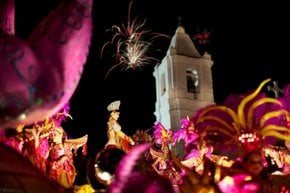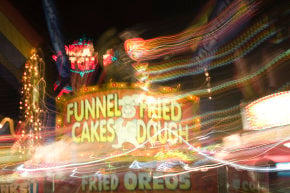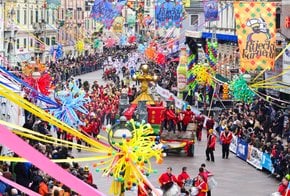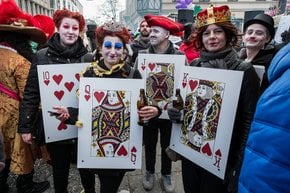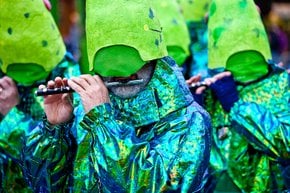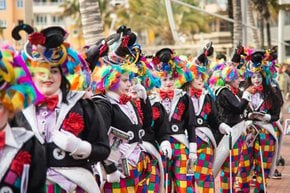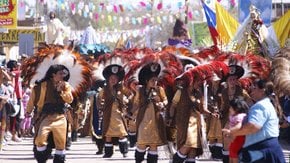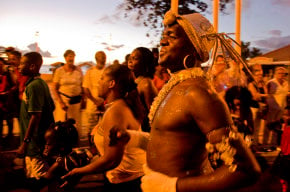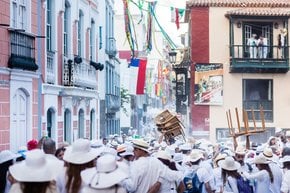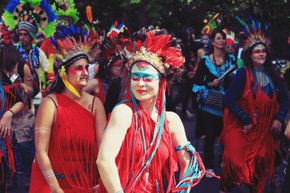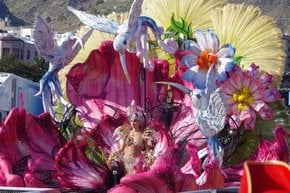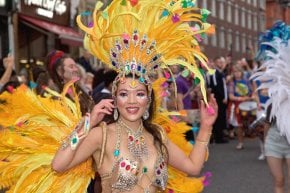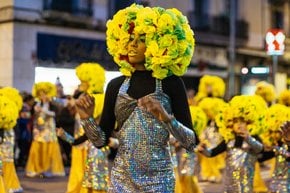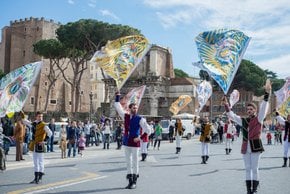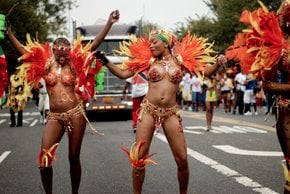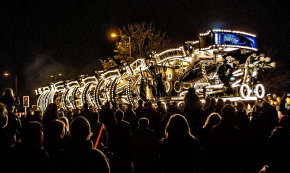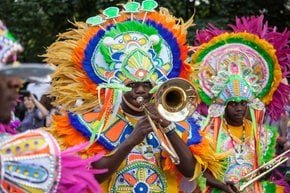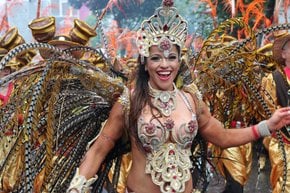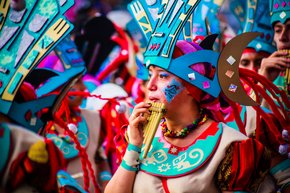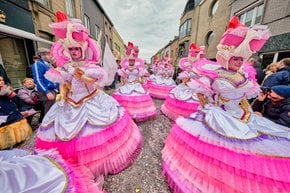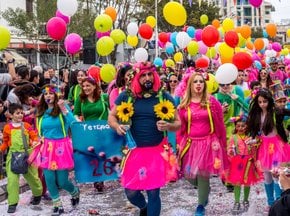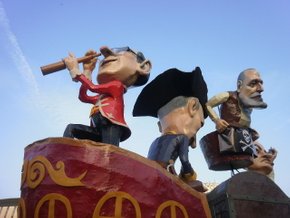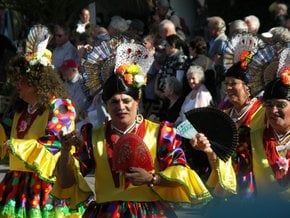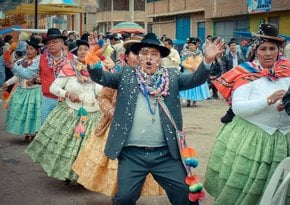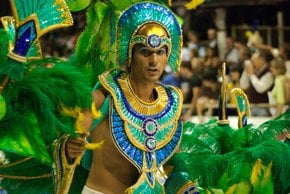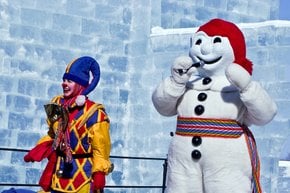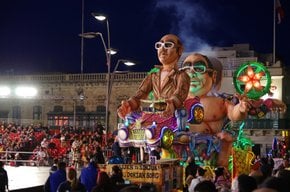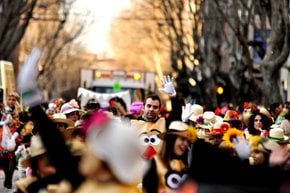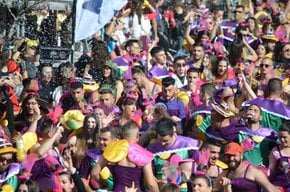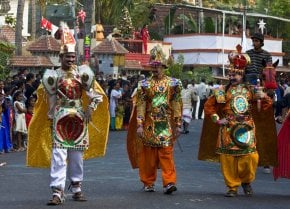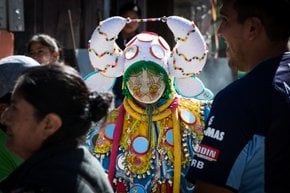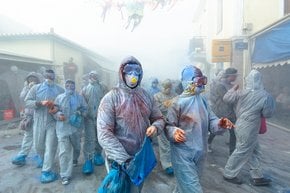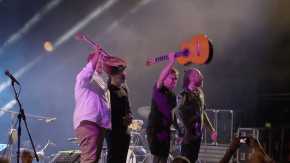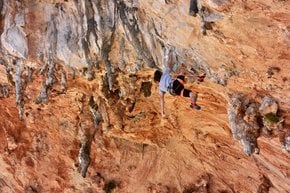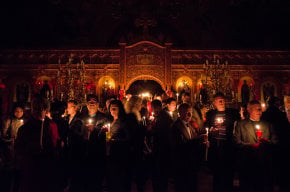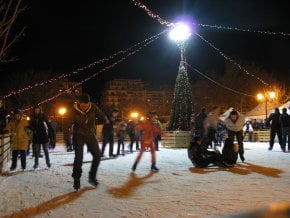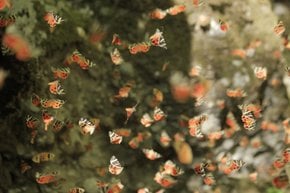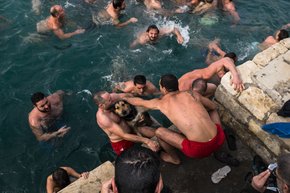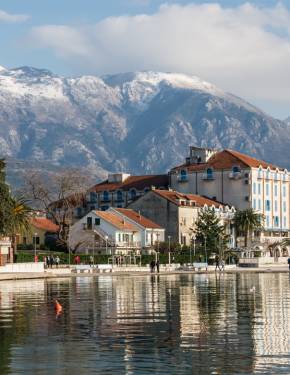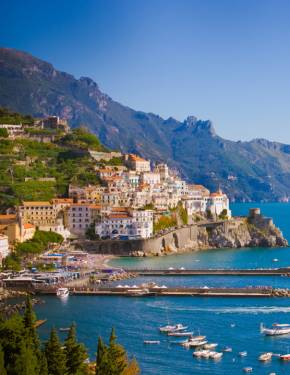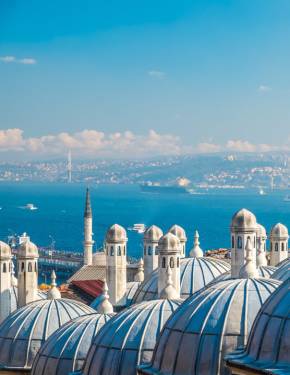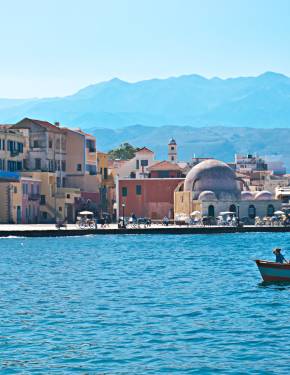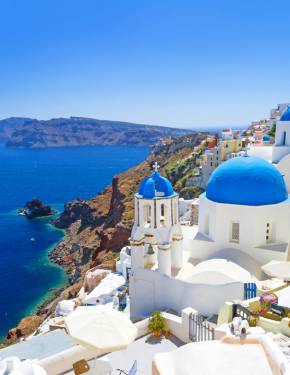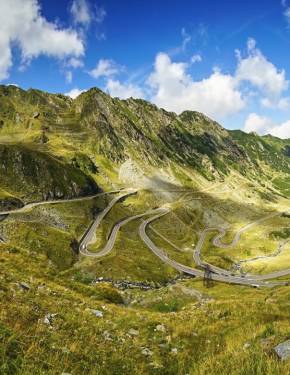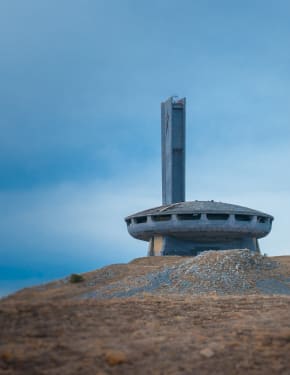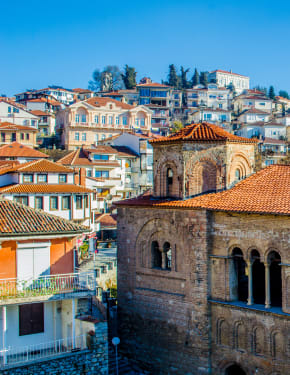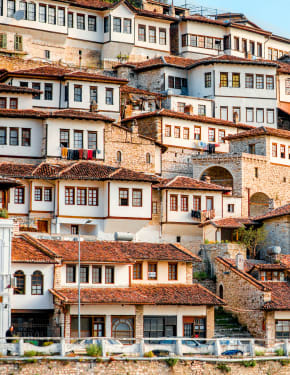Naoussa Carnival 2025 in Greece
An old Greek masquerade is recreated with precision and respect for traditions
Dates: February 9–March 2, 2025
The Naoussa Carnival in Central Macedonia, Greece, is a vibrant celebration where tradition, history, and community come together. Known for its unique customs, such as the "Genitsaroi and Boules" performances, the carnival showcases Greece's rich cultural heritage while paying homage to its historical struggles. This article delves into the highlights, traditions, and historical significance of the Naoussa Carnival.
The "Genitsaroi and Boules"
Central to the Naoussa Carnival are the "Genitsaroi and Boules," ancient customs performed by young, unmarried men of the town. These participants don elaborate traditional costumes and masks known as prosopos. The white masks symbolize death, while the red accents represent resurrection and renewal. The intricate silver adornments on their costumes reflect the town’s defiance and resilience.
The "Boula," portrayed by a man dressed as a bride, symbolizes fertility and continuity. Together, the participants perform choreographed dances and reenactments that celebrate life, survival, and the enduring spirit of Naoussa's community. These performances are accompanied by traditional music featuring instruments like the zournas (a type of oboe) and the daouli (a type of drum).
Event Schedule and Activities
The Naoussa Carnival traditionally spans several days leading up to Orthodox Lent. The main performances of the "Genitsaroi and Boules" take place on the two Sundays before Lent. Processions begin early in the morning with farewells from family members, symbolizing a journey into history and tradition. Each day concludes with festivities in the central Alonion Square, where participants unveil their masks and dance into the early hours. The celebration continues on Ash Monday (March 3) with abundant food, wine, and music for all attendees.
Historical Significance
The Naoussa Carnival’s roots trace back to ancient Dionysian rituals, celebrating fertility, joy, and rebirth. Over the centuries, these traditions evolved but retained their core symbolism. The carnival also serves as a commemoration of local resistance during the Ottoman era. The tradition of the "Genitsaroi and Boules" is believed to have begun in 1705, when local youths resisted Ottoman conscription, leading to a tragic but heroic legacy. This connection to Greece’s struggle for independence is a central theme of the celebrations.
Culinary Delights and Local Attractions
Naoussa’s Carnival is also a culinary experience. Attendees can sample traditional Greek dishes such as pies, pan-fried desserts, and locally produced wine. The streets are lined with food stalls offering regional delicacies, creating a feast for the senses.
Beyond the carnival, visitors can explore the town’s rich natural and cultural offerings. Nearby attractions include the scenic Vermio Mountains and the ancient School of Aristotle, providing a glimpse into the area’s historical and natural heritage.

